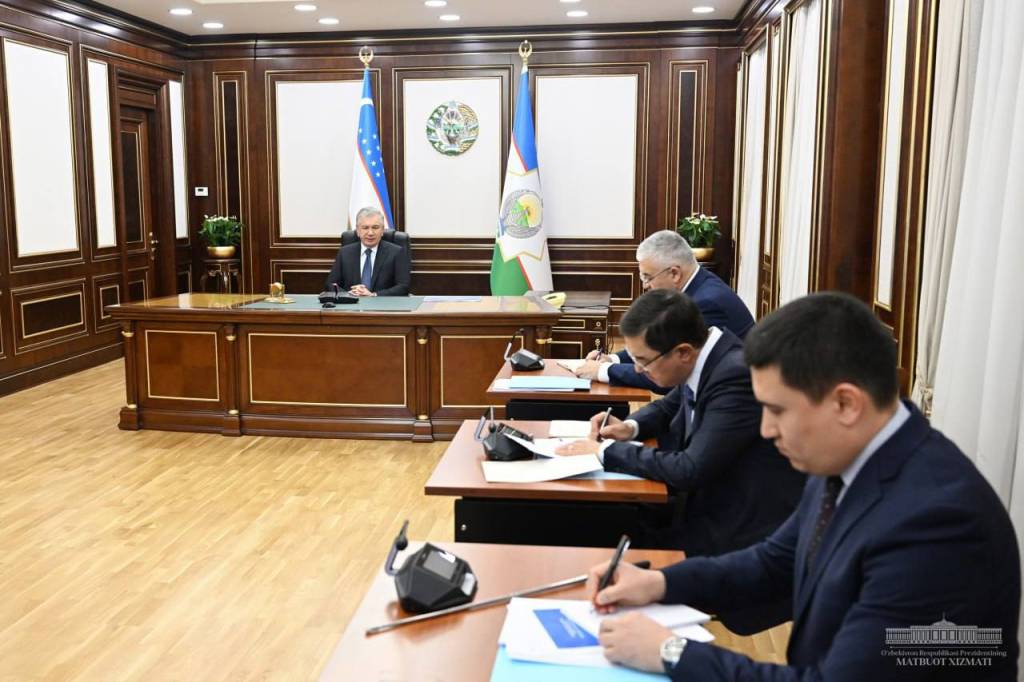On February 13, President Shavkat Mirziyoyev got acquainted with a presentation on key strategic reforms scheduled for implementation this year.
The Uzbekistan – 2030 Strategy sets a goal by 2030 to increase the country’s gross domestic product to $160 billion and per capita income to $4 thousand, thereby entering a number of countries with upper-middle income levels.
To do this, it is necessary to consistently continue the processes of transformation in the economy, to ensure a favorable investment and business environment, and high added value in agriculture.
The presentation examined reforms in 5 key areas – transport, urbanization, urban planning, development of entrepreneurship, agriculture, and energy.
One of the key factors in economic development is the use of transport capabilities. Due to Uzbekistan’s remoteness from sea routes, attention is paid to the diversification of air and railway routes. Last year, 6 airlines were created, and 28 new aircraft were purchased. The private sector was attracted to Samarkand International Airport.

At the meeting, it was noted that continuing these activities is necessary to accelerate the transformation of Uzbekistan Airports and Uzbekistan Airways companies and to continue successfully transferring airports to the private sector for effective management.
Providing high-quality Internet was noted for developing financial services, e-commerce, distance learning, and medical services in the regions.
In the next seven years, the number of cities and districts with more than 300 thousand people in Uzbekistan will increase from 13 to 28. Due to the lack of master plans, some cities and towns are expanding only by increasing their area. This leads to higher infrastructure costs and less agricultural land. Therefore, there is a need to develop a law and concept on urbanization.
To create a more favorable business environment, it is necessary to clearly define the rules of public-private partnerships in roads, drinking water supply, education, and medicine. At the same time, developing a program of such projects together with the leaders of industries and regions is advisable.
Particular attention was paid to the issue of transferring certain functions of the state to the private sector, including landscaping and management of free economic zones.

Agriculture plays a vital role in providing food and employment to the population. However, some of its industries still have outdated approaches. Therefore, specific solutions are needed to increase productivity, reduce costs, and introduce innovations.
First, to maintain economic growth rates, it is necessary to ensure a stable energy supply. This year, 122 major investment projects worth $50 billion will be launched. At the same time, the population and enterprises are growing. In the coming years, energy demand will increase at least 1.5 times. In addition, energy consumption remains high in some industries.
The Head of state, getting acquainted with the proposals in these areas, emphasized the need to create a legal framework and reliable guarantees for investors.
“In 2024, we should complete all processes of building the foundation of a market economy and, in 2025, bring the national economy to a completely new level of quality”, the President said.
The need to involve all research institutes of the country in the reform process with the preparation of an extensive action plan was also noted.
UzA
- Added: 14.02.2024
- Views: 2738
 Ўзбекча
Ўзбекча English
English Русский
Русский
